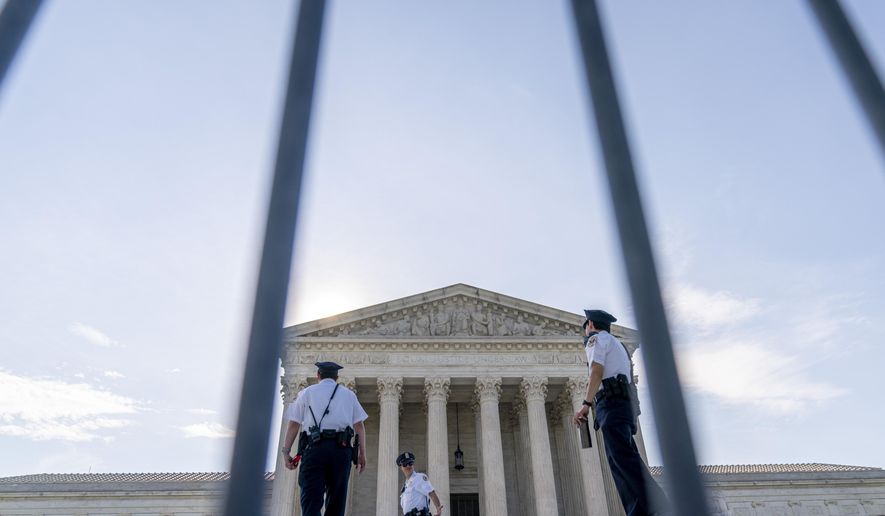The Supreme Court on Monday shot down an attempt by an immigrant who is in the U.S. illegally to claim that he is entitled to a pathway to citizenship because he was granted a deportation amnesty under the Temporary Protected Status program.
Jose Santos Sanchez, a citizen of El Salvador, had argued that once he won TPS under the law he qualified for an adjustment of status to lawful permanent resident — obtaining a green card. But the justices said that was a misreading of the law.
The case turned on the way the law is written, with Mr. Sanchez arguing that TPS meant he was now in nonimmigrant status, which is a prerequisite to get a green card.
But Justice Elena Kagan, writing for the unanimous court, said another part of immigration law requires that those applying for green cards enter the country lawfully.
“Sanchez was not lawfully admitted, and his TPS does not alter that fact. He therefore cannot become a permanent resident of this country,” Justice Kagan wrote.
Mr. Sanchez crossed the border illegally in 1997, and his wife did so the year after.
They were still here in 2001 when earthquakes rocked their home, and the U.S. government conferred TPS on hundreds of thousands of Salvadorans living in the U.S., granting them a reprieve from deportation and entitling them to work permits and some taxpayer benefits. But TPS, while a tentative legal status, did not erase their initial illegal entry, the court ruled.
About 200,000 Salvadorans are still living under TPS two decades after the earthquake, with the U.S. government holding that their home country still hasn’t recovered. The Trump administration tried to end the status, but courts blocked that move.
A dozen countries are designated for TPS — El Salvador has the largest population among them.
Some TPS residents can apply for green cards, the key intermediate step before winning U.S. citizenship.
That includes undocumented immigrants who came legally — such as on a student visa — then overstayed, and were out of status at the time the TPS declaration was issued. Those migrants, Justice Kagan said, were admitted lawfully, and so they meet the criteria.
But far more TPS holders likely fall into the category with Mr. Sanchez as border crossers. Had he won his case, it could have opened the door to hundreds of thousands of new green card cases.
Democrats on Capitol Hill are pushing legislation that would grant a full pathway to citizenship to TPS holders no matter how they arrived. That bill has cleared the House but has not seen action in the Senate.
• Stephen Dinan can be reached at sdinan@washingtontimes.com.




Please read our comment policy before commenting.